History of Altit Fort Hunza Karimabad, Beauty of Gilgit Baltistan
Altit Fort is situated in the village of Altit, about 3 km from Karimabad. It has been built on a sheer rock-cliff that falls 300 meters (1000 feet) into the Hunza River, and is much older than the Baltit Fort.
View of Altit fort, with the central town to the right and below the fort. The extreme gullies, sharp drop-off, and location high above the river made this settlement highly defensible and an older settlement than many in the central valley.
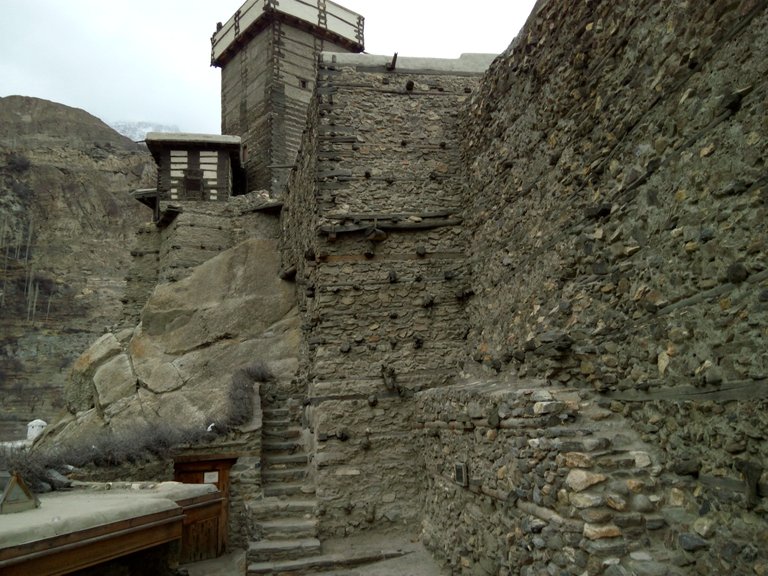
The majestic historical Altit fort is center of attraction due to its architectural design and strategic location. Altit is the birth place of the Hunza Kingdom and Altit fort is the first fort of the region. The fort has been constructed in six different stages by using various natural levels of the rock. The construction has been made right on the edge of a sheer rock cliff that drops 1000 feet straight down to the Hunza River.
In the beginning it was built as a palace, soon after the addition of the watch tower a defensive architectural element it transformed to a fort. There is great possibility that different stages of the fort have been constructed during different times because the actual age of the fort is said to be more than 800 years. This fort is said to be around 50-100 years older than the Baltit Fort.
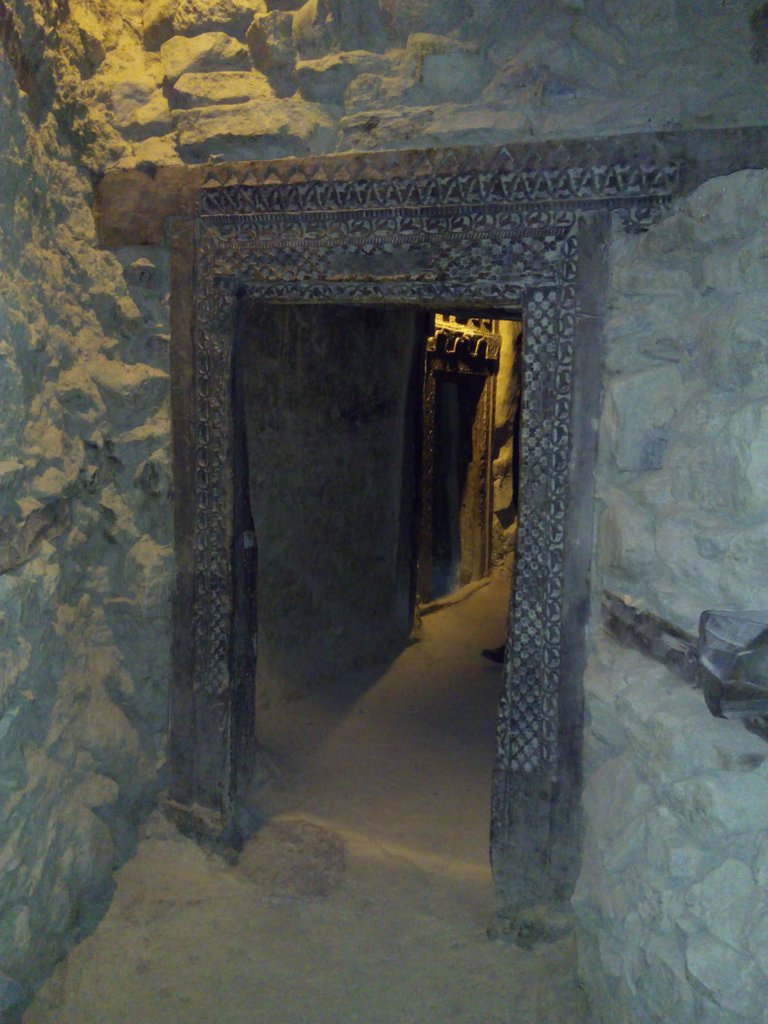
****** Entrance to Altit Fort, Hunza Karimabad ******
HUNZA, Oct 1: An ancient house in Hunza has received the Unesco’s Heritage Award for 2009. Ali Gohar House, a 400-year-old architectural masterpiece, formerly used by envoy of Mir of Hunza to Kashgar, Sinkiang, was selected by a panel of international conservation experts in architecture, urban planning, heritage conservation and landscape design from among the 52 entries from 14 Asia-Pacific countries, including Australia, China, India, Korea, Vietnam, New Zealand and Thailand. The historic house has been restored by the Aga Khan Cultural Service.
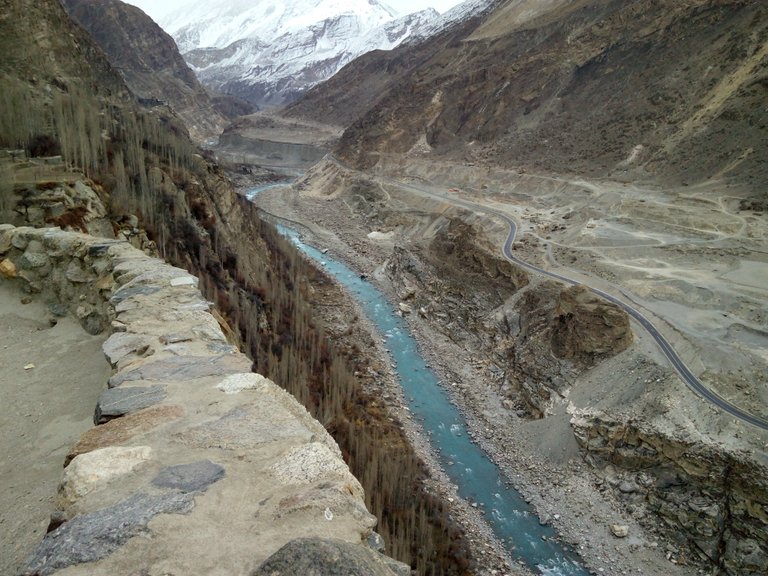
A view of Karakoram Highway from Altit fort.
The award distribution ceremony is expected to take place in the first quarter of 2010 at Ganish, Hunza, and will be attended by the representatives of Unesco, ministries of Culture and Tourism, community and foreign embassies.
Being involved in the rehabilitation of Ganish old settlements since 1998, the #AghaKhan Cultural Service, #Pakistan on the request of the Ganish Khun Heritage Care and Social Welfare Society (GKHC & SWS), initiated the physical conservation of the house in 2004. ‘Reusability’ being the core component for restoration, Ali Gohar House was intended to be used as a community centre, providing working space to the Ganish society, encouraging women to congregate and work, and to be a centre for arts, crafts and documentation of Ganish culture in consultation with the community. The House has now been leased by the owner to the community, setting a strong example of community based management system.
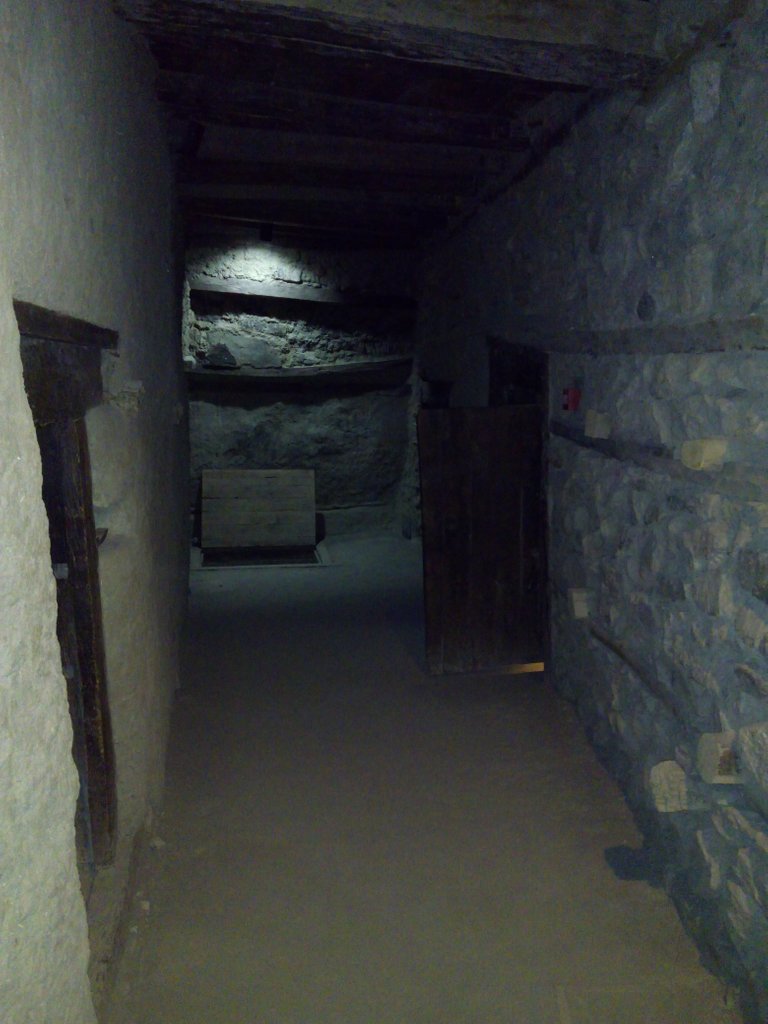
During the restoration, AKCS-P ensured minimising the appearance and unseen presence of all modern elements. The insertions needed for the adaptive reuse were designed in such a way that it permits, if necessary, their removal or alteration in future without damaging the adjacent original fabric. Minor modern materials such as the addition of basic electric and plumbing services were part of the new material incorporated in the historic building’s fabric. All such insertion were undertaken to retain authenticity and integrity of the original house. During the whole process, three missing historic wooden stairs were replaced by new ones to meet modern safety standards, whereas the rest of the house remains in its original form.
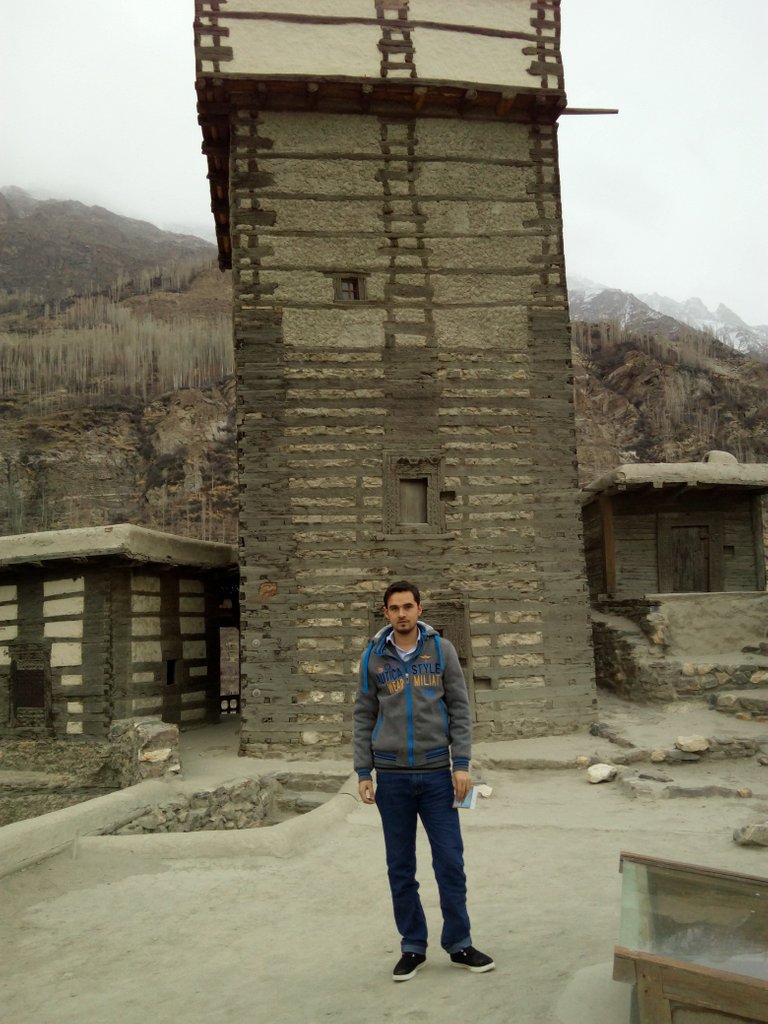
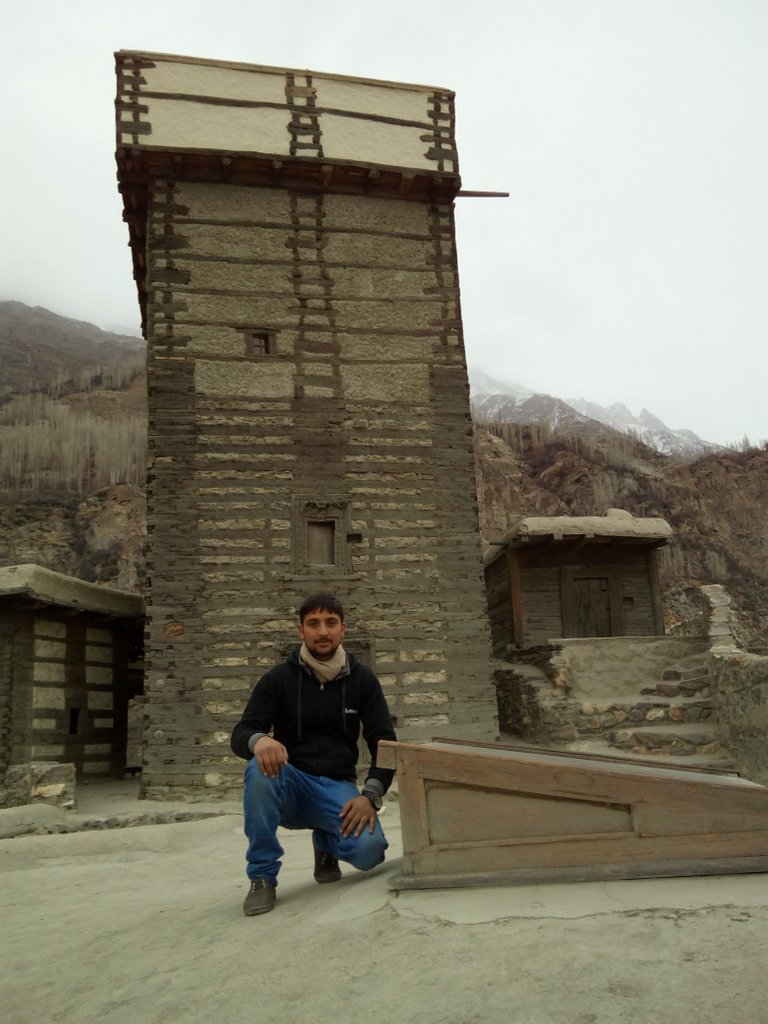
Watch Tower of Altit Fort, Hunza Karimabad - Gilgit Baltistan.
Hey Steemians great post. Keep it up. I upvoted your post.
You can follow me on https://steemit.com/@manashjyoti
Thanks for reading my friend.
Hi! I am a robot. I just upvoted you! I found similar content that readers might be interested in:
https://pamirtimes.wordpress.com/2009/10/02/ali-gohar-house-ganish-wins-unesco-award/
Thank you for upvoting Robot :)